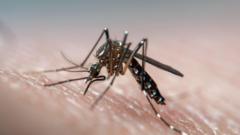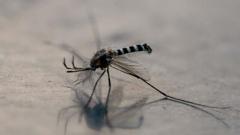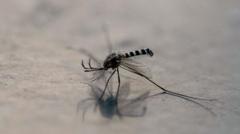A new study from the University of California proposes a genetic alteration in male mosquitoes, rendering them deaf to disrupt mating patterns, thereby potentially reducing the spread of diseases like dengue and Zika.
Innovative Approach to Combat Dengue: Render Male Mosquitoes Deaf

Innovative Approach to Combat Dengue: Render Male Mosquitoes Deaf
Researchers explore genetic manipulation to decrease mosquito populations and disease transmission by preventing male mosquitoes from mating.
Scientists are exploring an innovative method to mitigate the impact of mosquito-borne diseases such as dengue, Zika, and yellow fever by genetically altering male mosquitoes to make them deaf. A research team from the University of California, Irvine, focused on the Aedes aegypti species, notorious for transmitting these viruses to approximately 400 million individuals each year. The unique approach leverages the crucial role sound plays in mosquito mating; male mosquitoes utilize their hearing to detect the wingbeats of females during mid-air courtship.
In their experimental setup, researchers manipulated a genetic pathway linked to the auditory system of male mosquitoes. This manipulation targeted a protein essential for hearing, known as trpVa. The outcome was striking: the altered male mosquitoes exhibited no response to the sound signals typically emitted by potential female mates, effectively removing their ability to mate even after several days in proximity. Meanwhile, wild-type males managed to fertilize nearly all females available in the same habitat, demonstrating the stark contrast in mating success rates.
The research was published in the journal PNAS, emphasizing the experiment's "absolute" effectiveness in eliminating mating among the deaf mutants. Dr. Joerg Albert, a leading expert on mosquito reproduction at the University of Oldenburg, evaluated the findings, underscoring the promise of targeting auditory functions as a viable mosquito control strategy. However, he cautioned that further studies are needed to understand the ecological impact thoroughly, including the ramifications of potentially leading female mosquitoes to extinction and its consequences on the ecosystem.
In addition to this deafening method, another control strategy involves releasing sterilized male mosquitoes into areas plagued by mosquito-borne diseases. While addressing the health risks posed by these insects is crucial, it is also important to acknowledge their role in the ecosystem as a source of food for various predators and as key pollinators. The research represents a significant step forward in the ongoing battle against significant public health threats posed by mosquito populations.







